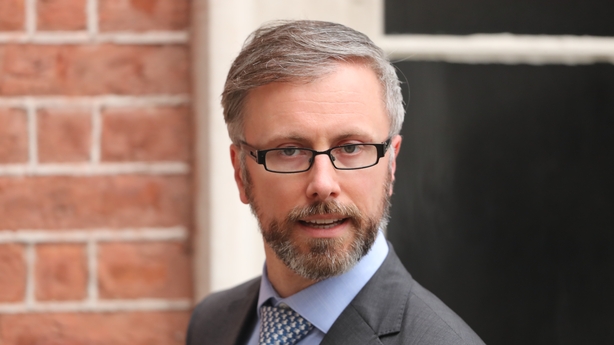Taoiseach Micheál Martin might have expected a warmer reaction to his declaration in the Dáil that the State had failed both the women and children in Ireland’s mother-and-baby homes.
By any standards it was a blunt admission, and the accompanying apology was without qualification.
The Taoiseach said to the survivors: “Each of you is blameless. Each of you did nothing wrong. And has nothing to be ashamed of. Each of you deserved so much better.”
It was the State, rather than society in general, which had the “ultimate ability to exert control” over these institutions, but hadn’t exercise it.
The consequent lack of respect for the fundamental dignity and rights of the mothers and children was “humbly acknowledged and deeply regretted.”
Mr Martin added that his Government “… accepts and will respond to all of the recommendations made by the Commission.”
However, there are three identifiable problems for Mr Martin:
- Survivors had been promised political action before, which then failed to materialise
- This Government’s handling of the issue has been questionable, if not lamentable in the view of Opposition parties
- There are significant question marks hanging over the report, albeit that many people haven’t finished reading it
The final speaker on the issue in the Dáil, Galway West Independent TD Catherine Connolly, reflected that scepticism about the Government’s intent when she told the Taoiseach: “If you are changing today, with a fulsome apology, I welcome that… and with quick action in relation to compensation scheme and proper supports. I doubt that [will be delivered], but I will work with you.”
Basically, there is an absence of trust which will translate into political landmines for Micheál Martin.
The first issue is with the report itself.
The Sinn Féin leader, Mary Lou McDonald, said the report laid bare the “ultimate abuse of power” and “a brutality inflicted on young women and girls.”
However, she questioned how the Commission could conclude that there was an absence of evidence proving women were forced into such homes, when the survivors’ testimony detailed just that?
As Deputy Connolly put it: “Either we believe the women or we don’t.”
The view of People Before Profit’s Bríd Smith was that the report should be rejected for that reason, as well as its finding of an absence of proof for a profit motive related to adoptions.
So, how is the Government to handle this issue?
Does it row-in behind the Commission report, and be forced to defend it? Or will it implement a document over which it has questions?
The Government was already in a delicate position due to the partial leaking of the document over the weekend before survivors had read it.

There was also last year’s debacle in which Minister Roderic O’Gorman had to apologise for an absence of consultation with representative groups over his legislative plans.
Ahead lie even more difficult decisions.
The Government’s latest commitment to enact legislation relating to information and tracing, before the end of the year, has been roundly dismissed as ‘too little too late’ by a broad range of Opposition politicians.
Will the Government fast-track this issue or face repeated criticism for the rest of 2021?
Then there is the relationship between Church and State. Minister O’Gorman told the Dáil that he has already written to the religious institutions about contributing financially to the Government’s restorative justice scheme.
But, again, the Opposition wants the Government to go much further.
Labour leader, Alan Kelly, told the Dáil that legislation should be passed in the Oireachtas, to secure the assets of religious institutions, if they don’t pay-up.
He said he would draft the bill himself, because there could not be a re-run of previous scandals in which commitments were given by the Catholic church but only partial payments were made.
Rise TD Paul Murphy said such institutions had a “financial responsibility” and “should not get away with it.”
But how far is the Government prepared to go? If it does not act, it will be accused of perpetuating what the Social Democrats’ Holly Cairns described as “… the silence, shame and misogynistic control and abuse perpetrated and facilitated by the State and church authorities.”
The Ggovernment’s plan is to act on the Commission’s recommendations: give a formal State apology; create appropriate memorials at the locations where the abuse took place; provide better health services and housing for survivors; provide access to information for survivors about themselves; institute financial restorative justice; and archive all documents related to such institutions.
The Tánaiste, Leo Varadkar, told the Dáil he wanted the survivors to “inform us as to the next steps.”
He said: “It is late in the day, but now is our opportunity to make restitution on behalf of the generations that preceded us. The means by which we do so should be guided by the men and women who survived these institutions.”
It sounds like the way to proceed.
But, as pointed out by many TDs, if the survivors really are at the heart of all this – why did the Government make its apology today, when many representative groups had appealed for it to be delayed until they’d had the chance to read and consider the 3,000-page document?
As I said, trust is in short supply.
